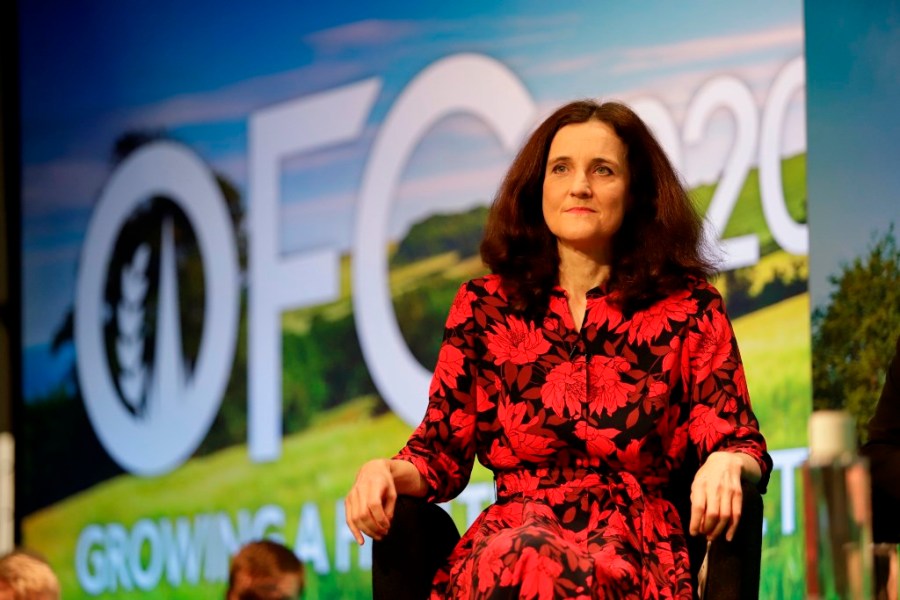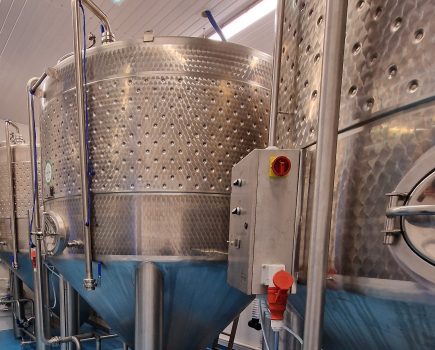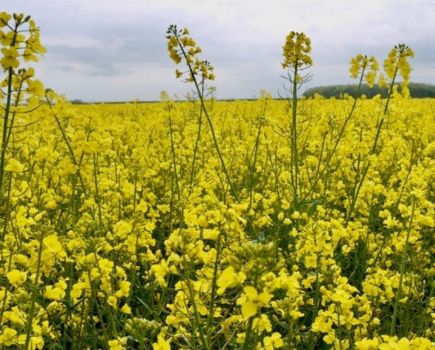Defra Secretary of State Theresa Villiers has told farmers the election had given the government the majority it needed to drive forward changes it would be introducing through The Agriculture Bill. Tom Allen-Stevens reports.
Speaking at the Oxford Farming Conference on 8 January, she said she shared the determination of farmers to show UK leadership in the task of “feeding a rapidly growing global population at the same time as addressing the massively important challenges both of climate change and reversing the deeply worrying decline of nature biodiversity and habitats.”
The Environmental Land Management (ELM) contracts would be the most important reforms in this area for over 40 years, she noted. “Our aim is a managed and fair transition to a system tailored to our needs in the UK, based on a principle of public money for public goods.”
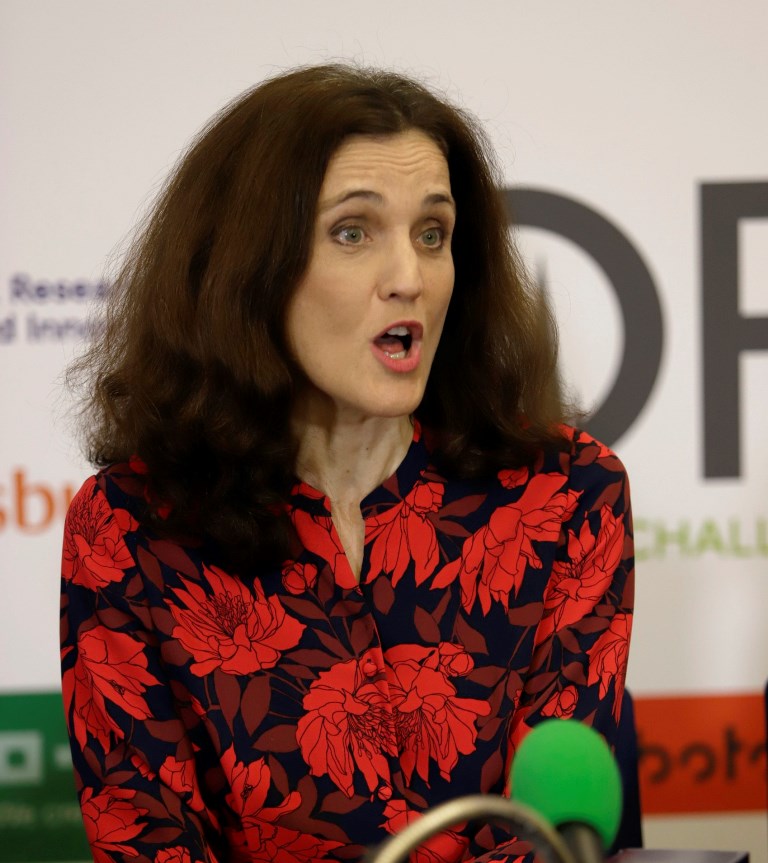
Theresa Villiers aims for a managed and fair transition to a system based on public money for public goods.
Up for support will be clean air and water, measures to protect wildlife and mitigate the impact of flooding. This will also be underlined in the Environment Bill, she added. Defra received over 300 proposals to design this new system, with 38 tests and trials up and running and over 30 more to follow, to establish what will work in practice. A key part will be for farmers to produce “an individual plan for what works for them,” said Theresa.
The National Pilot launches in 2021, with the new scheme due to be up and running in 2024. Those who enter Countryside Stewardship agreements before ELMs are introduced will be able to switch without penalty, she confirmed.
The transition will begin in 2021, which is when direct payments in England will start to reduce on a seven-year timeline. Funds saved will be invested to launch ELMs, and also improve agricultural productivity and increase the resilience of farm businesses, she said.
She urged farmers to take up existing grants to plant trees as well as those that encourage investment in precision agriculture, robotics and infrastructure, indicating these would be stepped up through the Transforming Food Production Fund.
“We want to increase the input of farmers into our approach to research and innovation to make it more farmer-led because we know the use of your expertise can increase productivity sustainably whilst also moving towards net zero,” she added.
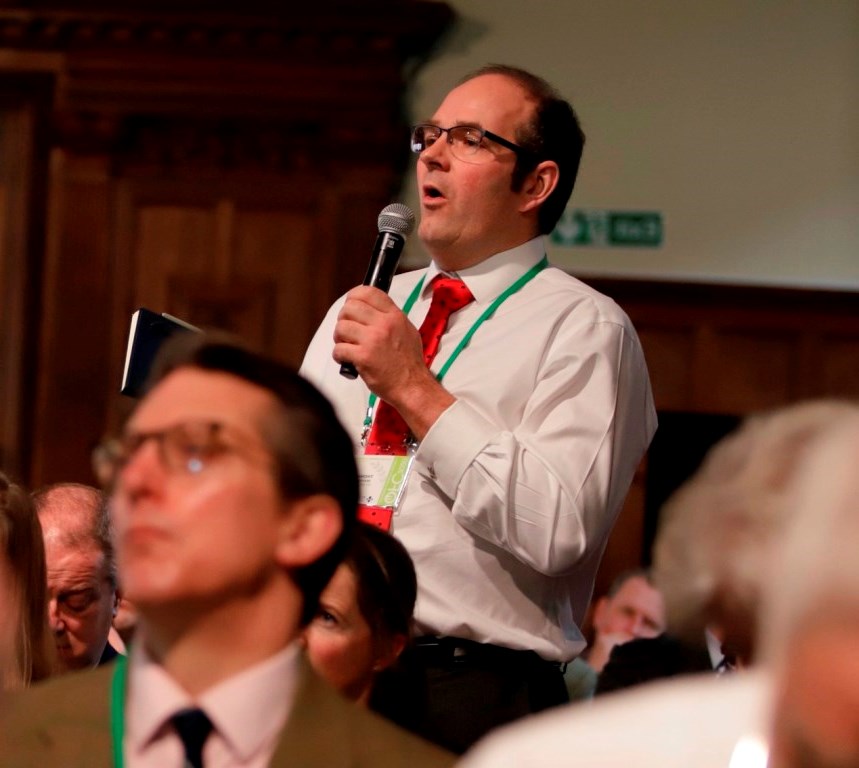
Tom Bradshaw had questions on the E10 mandate for bioethanol.
But there were questions raised at the conference about whether she had fully grasped the brief of her office since she was appointed in July last year. NFU combinable crops chairman Tom Bradshaw asked why there was no commitment from the government to the E10 mandate on increasing bioethanol content of fuel supplies to 10% – a question he said he had asked her twice previously. Theresa said it was a question for the transport secretary to address.
Richard King of farm business consultants Andersons voiced the concerns of many delegates: “Does Theresa Villiers have a vice-like grip on her portfolio? You get the feeling she’s just keeping the seat warm for her successor – the latest in a line of forgettable Defra ministers.”
New elements to The Agriculture Bill
With The Agriculture Bill now reintroduced to Parliament, new elements aside from encouraging food production and reporting on food security are:
- A requirement for Ministers to set out multi-annual plans of at least five years’ duration
- Measures to protect or improve the quality of soil and enhance soil health.
- Varied measures on matters relating to farming and the countryside, such as agricultural tenancies, fertiliser regulation, identification and traceability of animals.
Defra’s David Kennedy offered an insight to delegates as to progress on the new policy, and especially ELMs. “In the UK we’ve got some of the best-performing farms in the world – farms doing really exciting, innovative things. But average productivity growth has lagged behind other countries,” he said.
This will be a key focus, he said with grants to improve productivity and stimulate R&D and knowledge sharing. “The Agricultural Productivity Working Group of the Food and Drink Sector Council has presented a plan on what works, which is a data-driven approach including bench-marking.”
He said Defra had made a lot of progress on ELMs on a farm scale and landscape scale with plans to fund schemes from restoring wildflower meadows to carbon sequestration.
There were concerns raised that farmers already delivering public goods wouldn’t be rewarded for their efforts. “There will be a requirement to measure or show the benefit you’re providing, and where that is done well, it will be rewarded,” he assured.
But concerns have also been raised by the National Audit Office that Defra is dragging its heels over ELMs and that timescales are not being met or pushed back by at least six months, giving little time for farmers to adjust.
Proposals will be going out to industry shortly, said David. “We want to co-create and co-design these schemes with farmers.”

